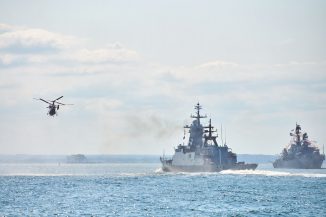
The Red Sea and Gulf of Aden are critical choke points of world trade routes. Around 12% of the world’s shipping traffic goes through there towards or from the Suez Canal. Instability in this region can cause disruptions with far-reaching impacts on the world’s economy. According to Suez Canal Authority, more than 22,000 ships passed through the canal in 2022. Now the tensions and instability are on the rise in the middle east sparked and fueled by ongoing conflict between Israel and Hamas.
There has been a series of recent air strikes on commercial vessels in Red Sea launched from Yemen territory by Iranian backed rebel group Houthis. This has forced many corporations to place restrictions on their transportation. Transportation companies like Hapag Lloyd, MSC or Maersk, British oil corporation BP and tanker group Frontline have already suspended their traffic in the Red Sea and rerouted south of Africa via Cape of Good Hope, adding up to 2 weeks shipping time. As a result, prices of oil and natural gas jumped up after this decision. Norwegian Equinor energy group apparently rerouted “a few ships” carrying crude oil and liquified petroleum gas (LPG) but refused to specify an exact number. ABN Amro analyst Albert Jan Swart says companies that diverted their traffic together control half of the global shipping container market.
At least 11 cargo ships on the way to Singapore, United Arab Emirates or Malaysia carrying consumer goods are anchored in the Red Sea as of December 19th, according to London Stock Exchange Group (LSEG) ship tracking data. It also shows that some transporters carry on using the route whilst they have armed guards on board or have their transponders turned off to avoid detection. Other vessels are masking their presence by pinpointing fake positions when approaching Yemen coastline.
When ships travel through risky areas, they must usually notify their insurers and shipping companies pay a risk premium. The premium already in place was around 0.07 % at the start of December. Now the premium has risen to 0.5%-0.7%. This has caused shipping prices to jump by tens of thousands of dollars per week. The Atlantic Council said that disruption of global supply chain poses further treats for economy as it is still recovering from Covid-19 pandemic, war in Ukraine and monetary tightening in many countries.
Shipping industry stakeholders released different statements saying that economic impact will be larger later if disruption lasts for a longer period. We could see delivery delays and higher prices in commodities.
A similar situation occurred in 2021 when the large container ship Ever Given got stuck in Suez Canal for 6 days causing major disruption and economic impacts. This time however, the situation is little different as there is more excess capacity to compensate for a disruption since a lot of new container ships have enter the market this year according to Marco Forgione, director general at the Institute of Export and International Trade. In 2021 there were no excess ships available so it’s unlikely we will see such spikes in prices this time. In addition to that, wholesalers, retailers, and manufacturers are still unloading excess capacity from their inventories.
US led group of countries including United Kingdom, Bahrain, Canada, France, Italy, Netherlands, Norway, Seychelles and Spain have announced a multinational initiative aimed to safeguard the region and plan to hold joint patrols in the southern Red Sea and Gulf of Aden. The USA has already increased its presence in the area but how many more patrol ships or aircraft will be deployed by the other countries remains to be seen.
Sources: Reuters, Investing, Statista, The Guardian
Photo: Shutterstock
